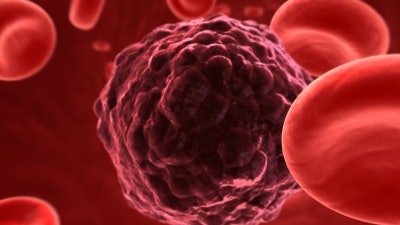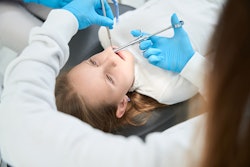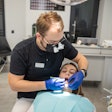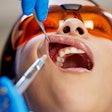
What began as "extreme pain" for Brian Hooks eventually turned into a head-shaking and life-changing discovery.
Hooks, a veteran of the U.S. Army, went to his local dentist trying to figure out what was causing the pain. After multiple visits to his dentist as well as an endodontist, oral surgeon, and ear, nose and throat specialist, the pain was still there.
"I've been grinding my teeth since I was a kid, maybe I'm grinding my teeth at night," Hooks told ABC Action News in Tampa Bay, FL. "I've never had a cavity. Initially, they thought, 'Well, we don't see anything wrong with your teeth.'"
And that was a hint of what would eventually be the problem. What was going on with Hooks wasn't something that was visible to the naked eye or even in the dentist's loupes. It would be something much more invasive and secretive.
Still, dental professionals tried to solve the pain and figure out what was happening with Hooks.
Root canals? They didn't solve the problem.
An extraction? That didn't work either.
Finally, after Hooks requested a biopsy and that request was reportedly ignored, a second biopsy request was answered. The result of that biopsy was a shock to everyone involved. Hooks was diagnosed with SMARCB1 deficient sinonasal carcinoma.
"It's a rare form of cancer, less than 200 cases is what they told me," Hooks shared. "I thought I was a healthy guy. I work out. I eat right."
However, as so many people know, cancer cares less about what you're doing to stay healthy. And this cancer was particularly devastating, requiring Hooks to have half of his palate removed, a procedure that now has him battling to talk and eat without difficulties.
While Hooks encourages his fellow veterans (and others, of course) to make sure they are pushing to receive whatever treatment they feel necessary, his story is also a lesson for dental practices out there to not only listen to your patients but also to build relationships with the medical community so if a patient is ever in need of cancer treatment or information, the hand off is seamless.
Pain in the oral cavity can be caused by many things. For Hooks, it was a worst-case scenario.



















